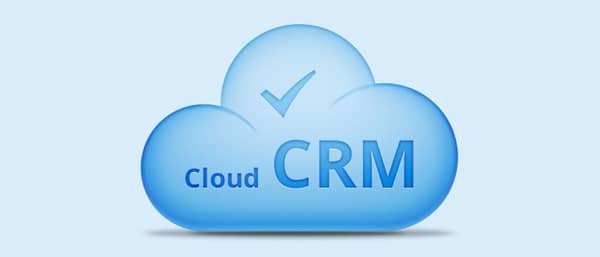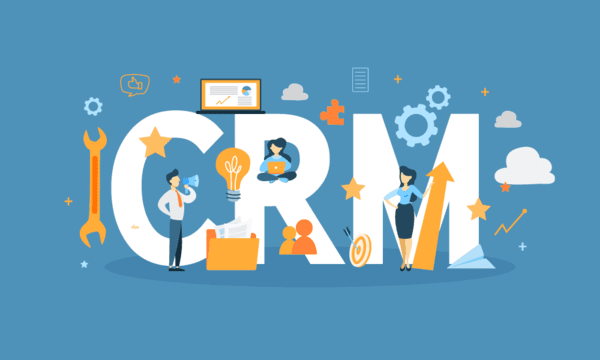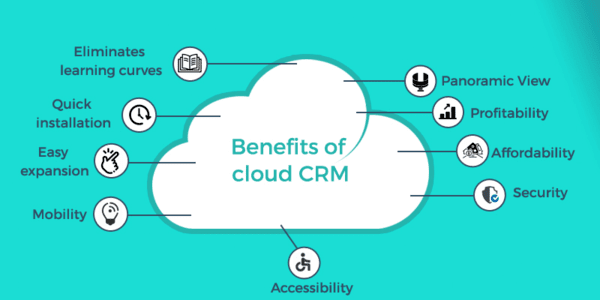
How Facial Biometrics and AI Are Used in Healthcare
November 11, 2021
What Is a Smart Grid Data Center?
November 16, 2021Of late, one particular term which has found its way into the lexicon of IT services and CRM is “Cloud Computing” or “Cloud CRM.” Cloud computing is a new IT model wherein both the hardware and software services are provided on-demand to customers through the network independently of the terminal device and location.
In the current business environment, companies are investing heavily in hiring cloud computing providers rather than enhancing their IT infrastructure.
As you may know, the term CRM stands for customer relationship management software. Within the CRM systems, there are many abbreviations and variations.
There are different types of cloud computing, namely, Infrastructure as a Service (IaaS), Platform as a Service (PaaS), and software ae (SaaS).
Most of the firms opt for the SaaS cloud computing model as it is very convenient, with no maintenance and investment, and just involves using the application through the Internet. Some notable examples of cloud computing are Google, Yahoo, and Microsoft Hotmail for e-mail, Picassa for sharing photographs, Facebook and LinkedIn for social networks, etc.
What Does CRM Stand For in Cloud Computing?
A cloud CRM is a model in which the CRM software, tools, and organization’s customer data is stored in the cloud, and some of the questions that need to be asked right away are whether to end-users via the Internet. In other words, it is a technology that enables accessing the IT networks, serving multiple users through the Internet.
Cloud CRM requires minimal IT personnel and management involvement from the users. A cloud-based CRM minimizes the con software’s future customers and makes CRM accessible to everyone.
As companies started to rely increasingly on the internet for various applications, there was a growing need to store corporate data on the web. This arrangement required a very high degree of security and trust. Cloud computing offers the perfect solution wherein a data storage environment is available through the internet, secure access, and controls.
The relentless expansion of business operations, data, and information has resulted in the CRM systems developing into massive, integrated systems. Therefore, these developments have made the use of the cloud indispensable for CRM applications.
Another positive aspect of cloud computing is related to energy. The current growth rate of IT infrastructure raises the specter of an alarming energy shortage as it is pretty unsustainable in the long run.
On the other hand, running a CRM system in the cloud is much more efficient and consumes considerably less energy.
Cloud also facilitates better and quicker responses, agility, mobility, and seamless communication. This has led to the concept of BYOD (Bring Your Own Device) becoming very popular. BYOD is part of a growing trend that encourages employees to work on the device of their choice, leading to increased productivity and reduced costs for small and medium-sized businesses.
Notwithstanding the increasing popularity of the cloud, there are many concerns regarding the security and reliability of cloud-based systems.
How Safe Is Cloud CRM Software
For this reason, companies must recognize the differences between public cloud and private cloud.
Public clouds store resources at an off-site cloud provider’s facilities, while private clouds rely solely on virtual private networks (VPNs).
Since private clouds are more secure and offer greater control, this might be more suited for storing sensitive information such as customer data.

The marketplace is becoming crowded with a growing number of vendors, each offering their cloud versions. This makes it very confusing for a beginner to evaluate the multitude of cloud options and select the right fit. To solve this problem, some basic guidelines should be followed. When choosing a vendor, the degree of flexibility should weigh on the top of the firm’s mind.
Some of the questions that need to be asked right away are whether the capacity can be increased and whether it is possible to move from a public cloud to a private cloud in the future. There is an inevitable trade-off between future flexibility, functionality, and costs while selecting the right cloud provider and solution.
CRM software’s future for small and medium businesses (SMB) in the cloud computing landscape will be marked by a change from SaaS to PaaS or IaaS as the primary model. Cloud computing makes it possible for firms to engage in real-time analytics and help them become more competitive and proactive in their approach. Nowadays, many business relationships begin their journey on the Internet through web searches, Facebook pages, and other sites.
The inherent flexibility through internet hosting allows SMBs to grow much faster and at cheaper costs. A significant chunk of money that upgrades physical services and assets can now be diverted to other, more vital business functions.
There is no need for centralized office space as all the employees need a laptop and an internet connection and hence helping in optimizing operations. A significant fear that CRM requires complex installation is no longer valid, as cloud-based CRM can be up and running in no time.
Deployment of CRM in the cloud facilitates easier social integration and communication with customers, creating CRM logic and data tracking. Cloud CRM is used to host customer relationship management data, while social media CRM incorporates social media and networking into relationship management. With the integration of cloud CRM and social CRM with the right tools, it is possible to obtain the best results.

Let us summarize the immense benefits of cloud-based CRM. The very nature of cloud-based systems makes it possible for an associate to log in from anywhere and access their account or customer information.
This can be particularly helpful while closing a sale from a remote location, making sales calls in the field, and tailoring the pitch appropriately. Most CRM solutions are accompanied by mobile apps compatible with Android or IOS and help provide crucial information on the go.
A cloud CRM is an excellent repository for all the information about the clients and the customers. Each user has their logins that enable multiple accounts to be logged in simultaneously and operate on the data. Seamless information exchange is also possible through the cloud.
Building on the premise of security, another critical component is the data backup in multiple locations. Gone is the era of stand-alone devices which lack the flexibility of integration. Cloud CRM can be easily integrated with different applications or software such as email clients, MS Office, etc., and this compatibility is the key to ensuring CRM’s longevity and success.
Cloud computing will eventually become a way of life for almost all organizations, particularly the sales teams. The future of the cloud will be focusing on storage as its top priority next to security.
Once these two concerns are addressed, companies will be able to channel their abilities into handling additional functions such as subscription billing management and business process management to improve the efficiency and effectiveness of business operations.
